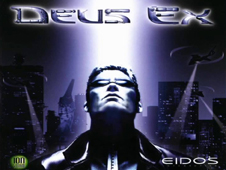Warren Spector is the co-creator of some of the best RPGs on PC, including such influential gaming series as Ultima Underworld, System Shock, and Deus Ex. He’s also not a fan of the Metaverse or NFTs, apparently, calling them “ridiculous”.
As the director or producer of some of the best old PC games ever made, Warren Spector has had a lasting influence on the videogame landscape – which is currently dominated by talk of NFTs. Publishers such as Ubisoft have gone all-in on them and the likes of Konami and EA have discussed them – but Steam has banned them and indie storefront Itch.io called them “a scam”.
It seems Warren Spector isn’t a fan of the controversial blockchain technology either. In an interview with VentureBeat, Spector risked getting in trouble to state his views. “NFTs are ridiculous,” he says. “I do not understand why anybody would want to climb on that bandwagon. Ownership of virtual goods that can be instantly reproduced in unlimited quantities. Who thinks that’s a good idea?”
Deus Ex’s creator is slightly more positive about the metaverse, in that Spector is happy for it to happen as long as he’s not around to see it. “Maybe someday,” he confirms, “but honestly it’s going to be long after I’m gone. I’m happy about that. I like living in the real world.”
He adds, “I don’t particularly find putting on a headset and interacting virtually with other people, not knowing if my wife is coming up behind me with a baseball bat – that just doesn’t appeal to me.”
Spector also had some words about his new immersive sim, which he confirms as an original IP. “Nobody’s ever seen anything like it,” he says. “My wife described it yesterday as my magnum opus. We’ll see. I don’t know about that. But I have a great leads team in place.”
 Deus Ex: Game of the Year Edition Deus Ex: Game of the Year Edition $6.99 Buy Now Network N earns affiliate commission from qualifying sales.
Deus Ex: Game of the Year Edition Deus Ex: Game of the Year Edition $6.99 Buy Now Network N earns affiliate commission from qualifying sales.
This all comes after Tencent took control of System Shock 3 in 2020, which Spector was involved with until the project fell through. “We worked on it in 2018 and 2019,” he tells VentureBeat. “That was it.”
